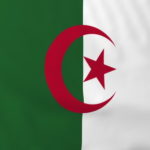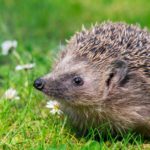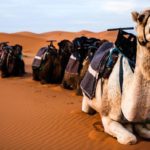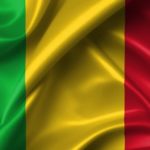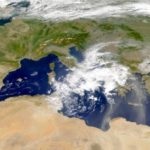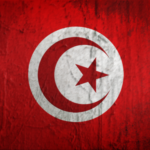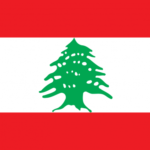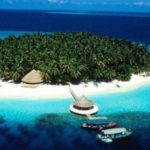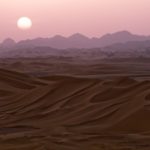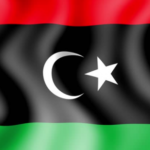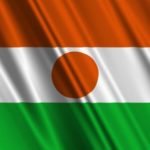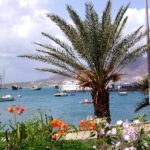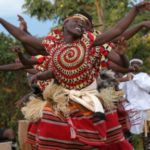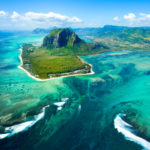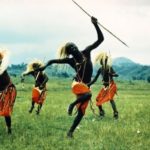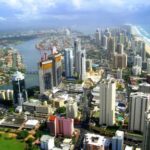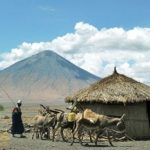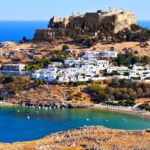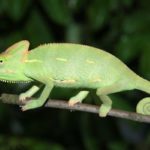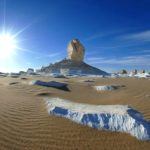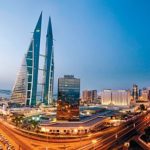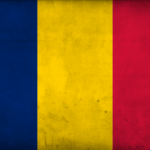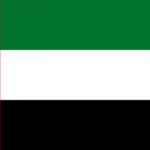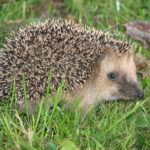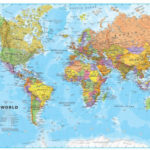Travel to Algeria
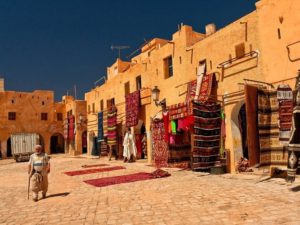 In the north of Africa there is a state whose name sounds like al-Dzhezair, which means translated from the Arab island, it is Algeria. This name originated thanks to a group of small islands in front of the entrance to the capital’s port, which gave its name not only to the capital, but to the whole country.
In the north of Africa there is a state whose name sounds like al-Dzhezair, which means translated from the Arab island, it is Algeria. This name originated thanks to a group of small islands in front of the entrance to the capital’s port, which gave its name not only to the capital, but to the whole country.
Most of the territory of Algeria, almost 80%, is occupied by the Sahara, the great African desert. In the north, the country is washed by the waters of the Mediterranean. On land, it borders in the east with Tunisia and Libya, with Mali and Niger in the south, and with Mauritania and Morocco in the west.
Algeria consists of 48 provinces or wilayas. The state system is a republic. Supreme power belongs to the president. Lawmaking is in the hands of the National People’s Assembly. The major cities of the country include Annaba, Oran, Constantin and others. The same championship of Palma, undoubtedly, belongs to the capital of the country – Algeria. If Africa has a gateway to Europe, then it is the capital that is advantageously located the largest seaport, the center of the economy and culture of the country.
The slopes of the mountain Dzhurdzhura, 16 km of the Mediterranean coast, the dome of the Cathedral of Notre Dame d’Afric, the uniqueness of the Kasbah, green boulevards, gardens and parks gave the person Algeria unique features and unforgettable beauty. In the capital there are many museums of art and history, the national library, a large beautiful botanical garden and the country’s oldest university.
The territory of Algeria, according to its natural and geological properties, is divided into 2 main areas. The first of these, the vast expanse occupied by the Sahara Desert, consists of a series of stony and sandy deserts, closed from the southeast by the Ahagar Highland with the highest point of the country, Mount Tahat. Due to the young geological age of the Atlas Mountains, Algeria belongs to areas with high seismic risk and earthquakes are not uncommon. But the north of Algeria is at 26 meters below sea level, and there is located the salt lake Shott-Melgir.
The Ueda, as the rivers in Algeria are called, are temporary streams, some of which flow into the sea, while others are absorbed by the endless sands of the desert. In summer, the Uedy and the lakes dry up, but where there is a reliable supply of groundwater, there are comfortable and pleasant oases for life.
The vegetation of Algeria for the most part is rather poor, but on the seashore, where evergreen tracts of trees and shrubs are rampant, the situation looks much better and more attractive. Stone and cork oaks, thickets of juniper and thuja, Aleppo pines, cedar are the trees that can be found in the forests of the Atlas Mountains.
The fauna of the country is rather poor: cheetahs and foxes, hyenas and jackals, birds of prey, turtles and snakes. In the mountains you can still meet hares and wild boars and, of course, representatives of very wild monkeys – macaques.
Finding accommodation in Algeria is quite simple, because there are many hotels with fairly low prices. The price of a room for two will be about 100 – 150 euros per day, but there are cheaper 10 – 45 euros for tourists with a low budget. Most hotels include services such as: cafeteria, bar, restaurant, night club, swimming pool, etc. During the summer season from June 15 to August 31, many owners rent buildings and houses on the Mediterranean Sea in El Calais. Price from 700 to 2,000 euros per month. Nevertheless, it is better to order a house through a friend or travel agency. Among the Russians, the Meskoutine Hammam hotel is very popular, which is located near the waterfall with hot water of 98 degrees Celsius. The price of renting a bungalow, varies between 15 – 30 euros.
In Algeria, there is huge unemployment and theft thrives naturally. Do not leave valuables, money and documents in the room. Despite many Western advisory warnings against travel to Algeria, tourism in Algeria is widespread. Terrorism is mainly active in the south of Algeria. For security reasons, you should not walk after twilight.
It is advisable to fly by plane, not by car. But if you still went around the country by car, then avoid bypass roads and do not stop outside the settlements. Often turn off the electricity. Be attentive to the choice of products that would not poison spoiled in the heat. Mosquitoes are another problem in Algeria, but they are just a nuisance, since malaria is not common. Better buy bottled water. Use protection from insects and the sun. Local dress is not quite familiar to Europeans, but it protects against mosquitoes and heat.
